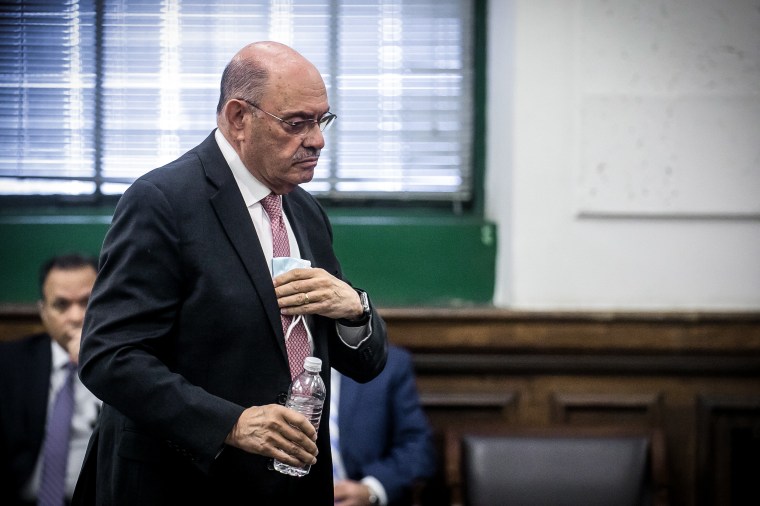Last week, Allen Weisselberg's testimony in the New York attorney general's civil fraud trial against Donald Trump, Weisselberg himself and others abruptly ended. And while the fact of that ending was easily observable, the why was not.
Some suggested it could have been because just hours earlier, Forbes, citing emails and reporters' notes, published a report accusing Weisselberg of lying on the stand. And earlier this week, I noted that while it's impossible to know, on the basis of publicly available information, whether Forbes is right, if Weisselberg gave knowingly false testimony, there could be consequences given his probation conditions.
For days, New York Attorney General Letitia James' team has been quiet about Weisselberg. But it broke its silence on Thursday morning with a letter that seems to confirm the Forbes report was indeed the reason the former Trump Organization CFO did not return to the witness stand after the lunch break on Oct. 12.
The veracity of Weisselberg's testimony is not the attorney general's chief concern right now, much less a stated concern at all.
The letter explained that during a sidebar — a conversation between counsel and the judge that the parties, witnesses and spectators are not meant to hear — the attorney general's office "asked for an opportunity to follow up on the Forbes article ... and its discussion of 'old emails and notes, some of which the attorney general's office does not possess.'"
But the veracity of Weisselberg's testimony is not the attorney general's chief concern right now, much less a stated concern at all. For now, the attorney general has not itself accused Weisselberg of lying.
Instead, having reviewed documents produced by the Trump Org, the attorney general's office told Judge Arthur Engoron that it "has identified likely omissions from production around inquiries from Forbes in 2016," including communications between Weisselberg and an employee of Marcus & Millichap, with whom he consulted with respect to golf course valuations.
The attorney general's office said Marcus & Millichap itself produced certain communications between its employee and Weisselberg regarding "golf course comparables" that Weisselberg sought in responding to Forbes. Yet these documents include ones the Trump Org itself did not hand over, according to the attorney general's office.
You might be thinking, "So what? Is it really a big problem that the attorney general is missing certain emails from the Trump Org if it received them from the other party?"
Yes and no.

The attorney general's letter attaches a single example of an email produced by Marcus & Millichap that wasn't found in the Trump Org's own documents. That document, of course, is just an example, and one that is relatively costless for the attorney general's team to highlight. (Significantly, it has already been used as a trial exhibit.)
What that example might illustrate, on the other hand, is a potentially big problem, or as the attorney general describes it, "a breakdown somewhere in the process of preserving, collecting, reviewing and producing documents" despite years of work by the attorney general to "ensure a complete response to [the attorney general's] subpoenas."
The attorney general is arming itself for a larger battle over truth, consequences and the future of the Trump Org.
More ominously, the attorney general's office observes that in light of "multiple affidavits on behalf of the Trump Org attesting to the completion of their production obligations," the fact that it can still point to missing documents is "also suggestive of potentially broader issues in the production process."
Attorneys for Trump and Weisselberg did not immediately respond to CNBC’s request for comment on the letter.
Just as it has not accused Weisselberg of false testimony, the attorney general's office also has not alleged that anyone associated with the Trump Org, from individual defendants to its outside counsel, has willfully or recklessly contributed to the destruction of evidence. But in asking that retired federal judge Barbara Jones, the current monitor overseeing limited financial reporting and other Trump Org obligations, not only "undertake a forensic examination" of the Trump Org's electronic data for August to September 2016, but also diagnose what happened and "propose remedies," the attorney general is arming itself for a larger battle over truth, consequences and the future of the Trump Org before it or anyone else even determines what recourse, if any, Weisselberg warrants.
The document preservation and production issues the attorney general raised Thursday are considerably less sexy than accusations of false testimony. But could they be part and parcel of the same spectrum of misconduct among those who believe the rules do not apply and that malfeasance doesn't count unless you're caught? You bet. Keep watching this space, and I'll share more from this case.
